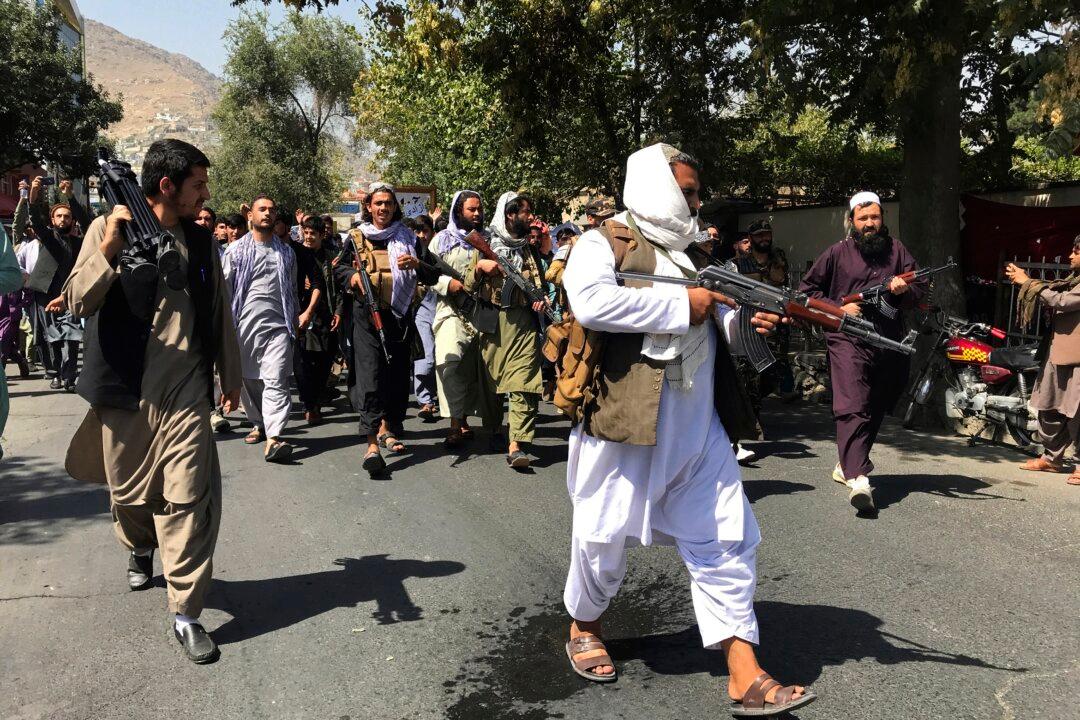The Taliban on Sept. 8 announced a ban on all slogans, demonstrations, and protests that don’t have official approval in yet another signal that the Islamic terrorist group is taking a hardline and repressive approach to government.
A decree was issued on Sept. 8 by the head of the Taliban’s new interior ministry, Sirajuddin Haqqani, who is a member of the Haqqani network that has long been designated as a terrorist organization by the U.S. State Department. The department also has a $10 million bounty on Haqqani’s head, while the United Nations has Haqqani on a sanctions list.




